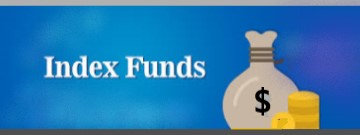
An Index Fund (also known as an Index tracker or Index Tracking Fund) is an investment product designed to follow preset rules and track the performance of an underling asset or basket of investments such as an index. The most common forms of an Index Fund is a Mutual Fund or an Exchange Traded Fund (ETF). These products can track the performance of investments such as the Standard & Poor’s 500 Index (S&P 500), Dow Jones Industrial Average of the FTSE-100 index in the United Kingdom.
The preset rules enable the fund to be operated as a passive investment. It is not subject to manager discretion as seen in stock picking or market timing or event driven investment strategies. Therefore, capital allocation is delegated to via the determination of the index methodology. This makes investments such as these ideal for investors with limited capital or without the sufficient knowledge to make their own decisions.
The rules governing the investment are implemented in conjunction with minimizing tracking error. Tracking error is the difference in performance of the underlying asset and the fund. For example, frequent buying and selling of the asset incurs costs but has a higher accuracy of index replication. Large block trading or a flexible trading strategy (which may involve manage discretion!) may produce a larger tracking error but can lower market impact costs. An index fund tracking the S&P 500 will invest in the same 500 companies that comprise that index. These are the largest publicly-owned companies in the U.S. As this benchmark index changes, so will index funds. The S&P 500 index is a capitalization weighted index. Therefore fund managers may need to periodically re-balance the percentage holdings of various securities in order to reflect their dynamic weighting in the benchmark. This method ascribes a greater influence to large companies reflecting their position in the wider economy. Without an equivalent 5 10 40 rule, this may lead to a lack of diversification and negate the benefits of passive investing.
Using an Index Fund
The Original Indexed Fund
The first index fund was developed by Vanguard chairman John Bogle in 1976. This fund remains one of the most popular and well known funds for its overall long-term performance and low cost. The Vanguard 500 Index Fund has tracked the S&P 500, in terms of composition and performance for more than 40 years. It boasts a minimal tracking error throughout its existence and has an expense ratio of just 0.04%. There is also a UCITS compliant variation available.
The most popular ETF to be traded in the United States in terms if liquidity is the SPDR S&P 500 ETF Trust (SPY) managed by State Street Global Advisors. The ETF has an Annual Report Expense Ratio (net) of 0.09% compared to the category average 0.36%. This is an extremely popular product. Merger Arbitrage Limited reports of the weekly performance of this product as a reference to the broader market.
